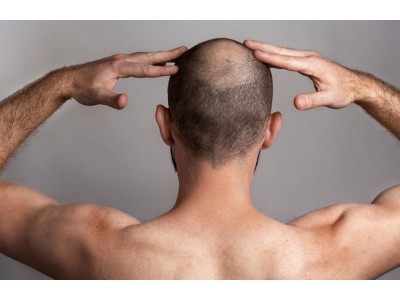Preventing excessive hair loss involves a combination of lifestyle changes, proper hair care, and addressing underlying health issues. Here are some effective strategies:
Healthy Diet: Ensure you have a balanced diet rich in vitamins and minerals essential for hair health, such as iron, zinc, vitamins A, C, D, and E, and omega-3 fatty acids. Protein is also crucial as hair is primarily made of protein.
Stress Management: Chronic stress can contribute to hair loss. Practice stress-reducing techniques like meditation, yoga, deep breathing exercises, or hobbies that you enjoy.
Gentle Hair Care: Avoid excessive heat styling, harsh chemical treatments, and tight hairstyles that pull on the hair follicles. Use a gentle shampoo and conditioner suitable for your hair type.
Avoid Smoking and Excessive Alcohol: Both smoking and heavy alcohol consumption can contribute to hair loss. Quit smoking and limit alcohol intake for overall health benefits.
Scalp Care: Keep your scalp clean and healthy. Regularly wash your hair with a mild shampoo to prevent buildup of dirt and oil that can clog hair follicles.
Avoid Tight Hats and Helmets: Wearing tight hats or helmets for prolonged periods can restrict blood flow to the scalp and contribute to hair loss. Opt for looser-fitting headwear when possible.
Medical Conditions: Treat underlying medical conditions that can cause hair loss, such as thyroid disorders, hormonal imbalances, and autoimmune conditions. Consult with a healthcare provider for appropriate management.
Medications: Certain medications can cause hair loss as a side effect. If you suspect a medication might be contributing to your hair loss, discuss alternative options with your healthcare provider.
Supplements: Consider taking supplements known to support hair health, such as biotin, collagen, and saw palmetto, but always consult with a healthcare provider before starting any new supplement regimen.
Professional Advice: If you're experiencing significant or sudden hair loss, consult a dermatologist or healthcare provider for a proper diagnosis and personalized treatment plan. They can determine the underlying cause and recommend appropriate therapies, including prescription medications or procedures like PRP (platelet-rich plasma) therapy or hair transplantation if necessary.
By incorporating these strategies into your routine and addressing any underlying causes, you can help prevent excessive hair loss and promote healthier, stronger hair growth.
